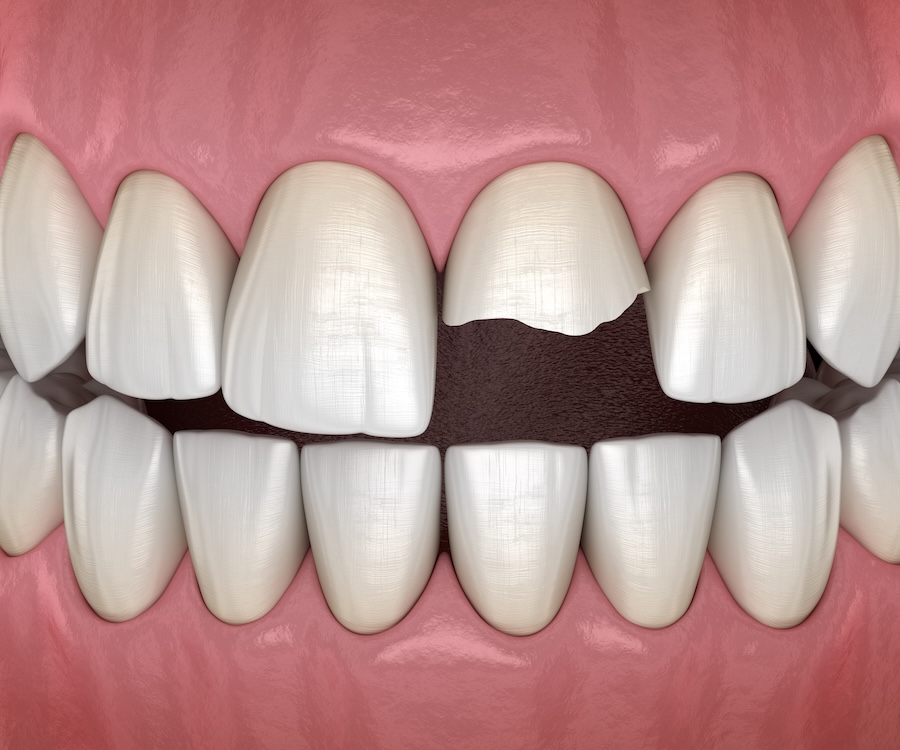
How Can I Manage Dental Trauma Until My Appointment?
September 15, 2025 9:00 amDental trauma can be scary, whether it happens from a fall, sports injury, or simply biting down on something hard. While every situation is different, what you do right after the injury matters. Quick, careful action can reduce pain, limit further damage, and sometimes even save a tooth.
The good news? With the right steps, you can manage most dental emergencies until you get to your dentist. Here’s what to do while waiting for your appointment.
Rinse, Protect, and Reduce Swelling
If you’ve injured your mouth and there’s bleeding, gently rinse with warm water to keep the area clean. Place a clean gauze pad or cloth over the site and apply light pressure. If the bleeding doesn’t slow down after 10–15 minutes, that’s a sign you should seek immediate care.
For swelling, use a cold compress on the outside of your cheek in 10–15 minute intervals. This not only eases swelling but also helps reduce pain. Skip placing aspirin or other medication directly on your gums—while it may seem helpful, it can actually burn or irritate the tissue.
What to Do if a Tooth Is Knocked Out
A knocked-out tooth is one of the most urgent dental injuries, and timing is everything. Pick up the tooth by the crown (the part you normally see) rather than the root, which can be easily damaged. If it’s dirty, rinse it gently with water, but don’t scrub or use soap.
The best chance of saving the tooth is to place it back in its socket right away. If that’s not possible, store it in a container of milk or your own saliva—never in plain water, which can damage the root surface. Call your dentist immediately; the sooner you’re seen, the higher the chances of reattaching the tooth successfully.
Handling Chips, Cracks, or Loose Teeth
Not all trauma involves a complete tooth loss. Sometimes a tooth chips, cracks, or feels loose after an accident. If you can find any pieces of a chipped tooth, bring them to your appointment. In the meantime, avoid chewing on that side and stick to soft foods to reduce stress on the injured tooth. You can also apply dental wax over sharp edges.
If a tooth feels loose, resist the urge to push, wiggle, or test it. Movement could worsen the damage. Your dentist will evaluate stability and determine the best treatment to strengthen or repair it.
Managing Discomfort and Eating Safely
Pain and sensitivity are common after dental trauma, but you can make yourself more comfortable. Over-the-counter pain relievers work well for most patients, as long as you follow the dosage instructions. Cold compresses can also provide relief for swelling and soreness.
Stick with softer foods and avoid anything very hot, cold, or crunchy until you’ve seen our team. This prevents unnecessary irritation and protects vulnerable teeth and gums.
When to Seek Immediate Care
Some dental injuries can wait for an appointment, but others require immediate attention. Severe bleeding, intense pain that doesn’t respond to medication, or swelling that makes it hard to breathe or swallow are all reasons to get emergency medical care right away.
Emergency Dental Care in Overland Park With Blue Valley Smiles
At Blue Valley Smiles in Overland Park, KS, Dr. Rachel Karabas and Dr. Graham Naasz understand how stressful dental trauma can be. Whether it’s a chipped tooth, a knocked-out tooth, or sudden pain, we’ll guide you through the next steps and provide the treatment you need.
If you or a loved one has experienced a dental injury, call our office right away. Acting quickly at home—and getting prompt professional care—can make all the difference in saving your tooth and protecting your smile.
CONTACT USCategorised in: Dental Emergencies
